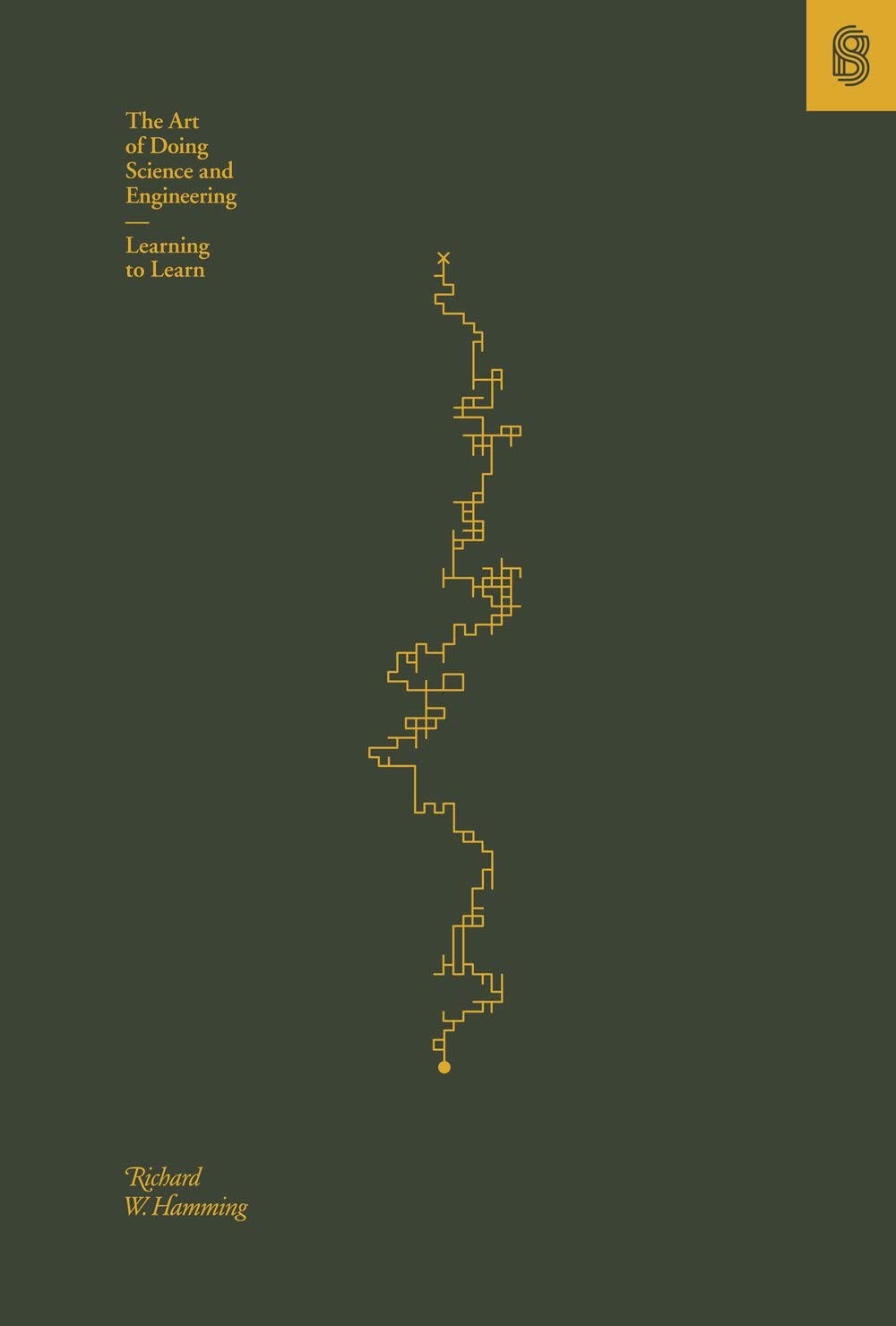Richard Hamming's Wisdom: Finding Fundamentals and Forging Your Vision in a Rapidly Changing World
How to navigate the "half-life of knowledge" and create a fulfilling career through focusing on fundamentals and building a personal vision.
Richard Hamming in his book The Art of Doing Science and Engineering talks about the problem of the speed of obsolescence of old knowledge:
It is claimed by many the half-life of the technical knowledge you just learned in school is about 15 years—in 15 years half of it will be obsolete (either we will have gone in other directions or will have replaced it with new material). For example, having taught myself a bit about vacuum tubes (because at Bell Telephone Laboratories they were at that time obviously important) I soon found myself helping, in the form of computing, the development of transistors—which obsoleted my just-learned knowledge!
He poses that one answer for this dilemma is that:
you must concentrate on fundamentals, at least what you think at the time are fundamentals, and also develop the ability to learn new fields of knowledge when they arise so you will not be left behind, as so many good engineers are in the long run.
Hamming then proceeds to attempt to provide answers to two questions:
What is it that we talk about when we talk about fundamentals
How do you make the choice of which path to invest our effort
Hamming continues by addressing the first question:
How are you to recognise “fundamentals”? One test is they have lasted a long time. Another test is from the fundamentals all the rest of the field can be derived by using the standard methods in the field.
To answer the second question, he employs a standard narrative:
It is well known the drunken sailor who staggers to the left or right with n independent random steps will, on the average, end up about steps from the origin. But if there is a pretty girl in one direction, then his steps will tend to go in that direction and he will go a distance proportional to n. In a lifetime of many, many independent choices, small and large, a career with a vision will get you a distance proportional to n, while no vision will get you only the distance . In a sense, the main difference between those who go far and those who do not is some people have a vision and the others do not and therefore can only react to the current events as they happen.
One of the main tasks of this course is to start you on the path of creating in some detail your vision of your future. If I fail in this I fail in the whole course. You will probably object that if you try to get a vision now it is likely to be wrong—and my reply is that from observation I have seen the accuracy of the vision matters less than you might suppose, getting anywhere is better than drifting, there are potentially many paths to greatness for you, and just which path you go on, so long as it takes you to greatness, is none of my business. You must, as in the case of forging your personal style, find your vision of your future career, and then follow it as best you can.
He concludes with a few words that would be remembered for generations:
Lastly, in a sense this is a religious course: I am preaching the message that, with apparently only one life to live on this earth, you ought to try to make significant contributions to humanity rather than just get along through life comfortably—that the life of trying to achieve excellence in some area is in itself a worthy goal for your life.
It has often been observed the true gain is in the struggle and not in the achievement—a life without a struggle on your part to make yourself excellent is hardly a life worth living. This, it must be observed, is an opinion and not a fact, but it is based on observing many people’s lives and speculating on their total happiness rather than the moment-to-moment pleasures they enjoyed.
Thanks for reading this article. Please share your thoughts in the comments. Enjoy your day!


